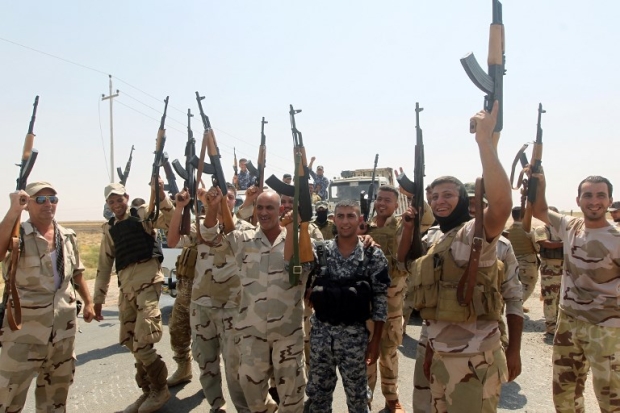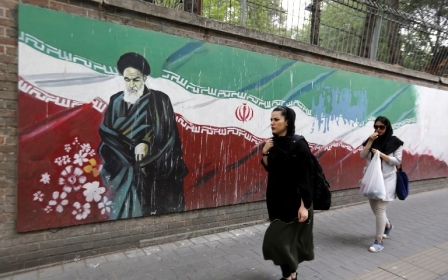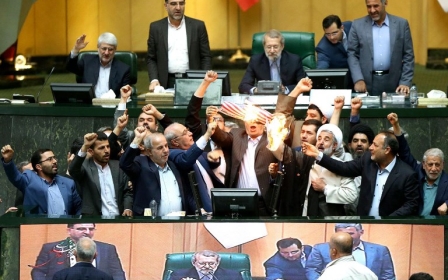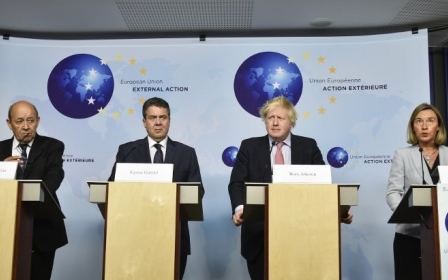Why a US-Iran clash was inevitable
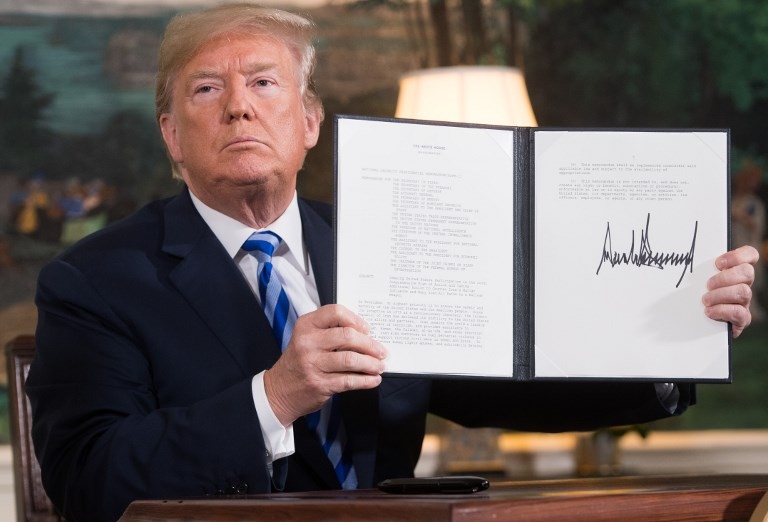
Going against domestic and global advice, President Donald Trump this month withdrew the US from the Iran nuclear deal. This might have surprised many, but amid the wider context in which the deal was negotiated and signed it is clear that a clash between the US and Iran was inevitable, regardless of the agreement.
The US - still widely viewed as a global hegemon, even if that status looks increasingly insecure - has aimed not only to prevent other countries from acquiring nuclear weapons, but also to prevent regional powers from challenging US interests. In the past, when Iraq was a regional power under Saddam Hussein, the US implemented a policy of "dual containment" of Iraq and Iran to deter their aggression beyond their borders while awaiting regime change. Later, some US foreign policy experts argued for "offshore balancing", or supporting countries in a way that stops one from dominating a region.
Iran given a free hand
When former US President Barack Obama was negotiating the Iran deal, it was focused on nullifying any nuclear weapons potential. The administration at the time was so oddly lenient with Iran in its regional expansion that it remained quiet about this to make the deal happen. It was as though Iran was forgoing its potential for nuclear power in exchange for a free hand in the region.
At a time when the US and the EU were constantly talking about the need to limit the number of foreign fighters joining anti-Assad forces in Syria, they turned a blind eye to Iran-backed militias mobilised under sectarian slogans and, of course, high-ranking Iranian officers who supported President Bashar al-Assad. This was an issue that the Arab media constantly ridiculed when discussing the conflict in Syria.
The US at the time had its own perceived or real limitations in the region, and Iran pushed beyond its borders during the power vacuum created by the Arab Spring
Somewhat oddly, in 2015, a few months before the nuclear deal was signed, an unclassified US intelligence report was presented to Congress in which Iran and Hezbollah were omitted from the list of terror threats to the US and portrayed in a more positive light, ostensibly over their efforts to fight the Islamic State (IS). This contrasted with the previous year's report, where Iran-backed Hezbollah was said to have "increased its global terrorist activity in recent years to a level that we have not seen since the 1990s". Obviously, the fight against IS was a factor in this tamed discourse, but the picture was bigger than that.
This doesn't mean that the Obama administration simply gave Iran the opportunity to expand in the Middle East out of goodwill. The US at the time had its own perceived or real limitations in the region, and Iran pushed beyond its borders into the power vacuum created by the Arab Spring.
US indecisiveness
Obama had already won on the platform of bringing US troops home from Iraq in 2009, and the American people had very little appetite for military intervention in the Middle East. Obama praised the Iraqi government on issues of democracy and inclusiveness towards the end of his second term, when such praise was unmerited.
Iran was already very influential in Iraq and remained unchallenged. The "red line" that Obama drew on the use of chemical weapons in Syria was violated by Assad with no response. The US was "pivoting to Asia", turning more attention and resources toward the containing of China and realising its limits in the Middle East, as Obama pointed out in his famous West Point speech, which ruled out major military interventions in the region.
Moreover, Russia had recently invaded the Crimea region of Ukraine, and the US seemed confused about how to proceed on the global stage. These were all green lights for any regional power in the Middle East to expand, and Iran was doing just that.
It seems Obama wanted to end his presidency on a positive note with the Iran nuclear deal. Iran knew that well and capitalised on it. It was only a matter of time before a subsequent administration would be alarmed by Iran's expansion and aim to curb it.
Diplomatic confrontation
Slapping economic sanctions on Iran will only make this containment easier. This is why Iran's regional foes - Israel, Saudi Arabia, the UAE and Bahrain - welcomed Trump's announcement.
Along with the US, those regional foes will maintain their diplomatic confrontation with Iran, attempting to delegitimise it, isolate it and turn more countries against the deal. The US will want to renegotiate the deal with economic sanctions that attempt to curtail the financing of Iran's operations abroad, while trying to shrink its influence.
Anything beyond these diplomatic efforts, without a change in the the configuration of alignments in the region, is unlikely. The Gulf Cooperation Council remains divided and Saudi Arabia's traditional allies are not interested in confronting Iran. Egypt is pinned by its local challenges and does not wish to undermine Assad in Syria.
Jordan and Saudi Arabia have not been on good terms either, and Jordan will be busy with its commitments to Palestine. Moreover, Iran has gained a strong foothold in Syria, with a solidified presence in Iraq. Hezbollah came out strengthened in Lebanon’s last elections and the US remains the only signatory to pull out of the nuclear deal.
Iran, at least for now, is in a much stronger position than in previous years. This is unlikely to change anytime soon.
- Mustafa Salama is a political analyst, consultant and freelance writer, with extensive experience and an academic background in Middle East affairs.
The views expressed in this article belong to the author and do not necessarily reflect the editorial policy of Middle East Eye.
Photo: US President Donald Trump signs a document reinstating sanctions against Iran after announcing the US withdrawal from the Iran nuclear deal in Washington on 8 May 2018 (AFP)
New MEE newsletter: Jerusalem Dispatch
Sign up to get the latest insights and analysis on Israel-Palestine, alongside Turkey Unpacked and other MEE newsletters
Middle East Eye delivers independent and unrivalled coverage and analysis of the Middle East, North Africa and beyond. To learn more about republishing this content and the associated fees, please fill out this form. More about MEE can be found here.



